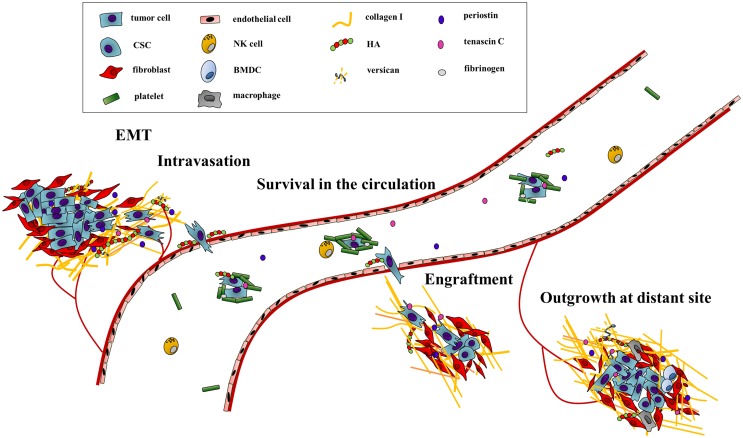Figure 1.
The ECM drives the progression of cancer cells along the metastatic cascade. The metastatic cascade is composed of multiple complex processes, which are critically influenced by ECM components. First, ECM-regulated signaling pathways increase cancer cell motility and promote the egress from the primary tumor. In addition, the stability of the endothelial cell barrier is critically regulated by HA, thus influencing intra- and extravasation efficacy of cancer cells. The survival in the circulation system is also directly and indirectly modulated by ECM components as they function as physical shields as well as attractants for platelets. Through deposition and modification of ECM components at distant sites, the initial engraftment and final colonization of cancer are enhanced. Hereby, biochemical as well as biomechanical cues of the ECM promote metastatic outgrowth.

